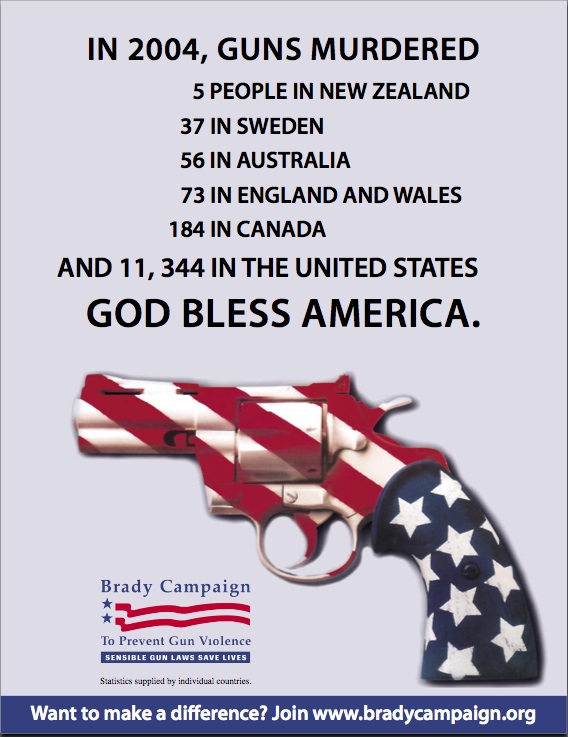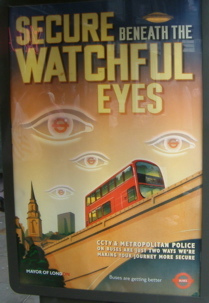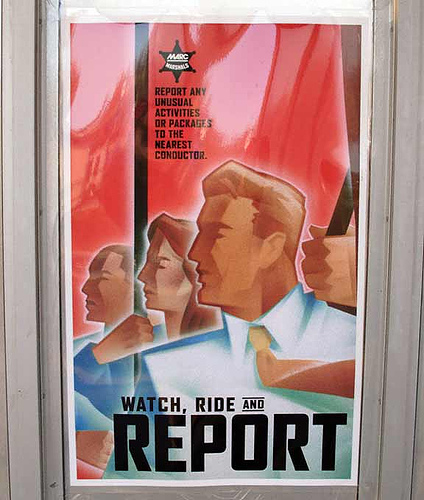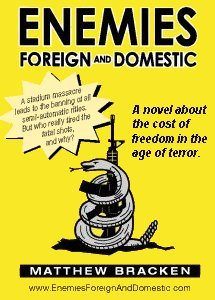« Smuggling Quail Eggs | Main | Atlanta's Finest »
April 27, 2007
British Licensing
Glenn Reynolds has a post on "How To Do Gun Control":
HOW TO DO GUN CONTROL: "Special squads of police. No notice searches. Fines. Imprisonment."
UPDATE: Eugene Volokh observes: "It does seem to me that a War on Guns, with unannounced random searches on streets and in homes, should be highly unappealing to anyone who has even some reservations about the War on Drugs, and questionable even to those who support the War on Drugs."
(For those who don't bother to read the rest of Glenn's blog post, this is not a proposal he supports.)
The gun-control lobby has often claimed that crime rates in other countries are "proof" that gun control laws reduce crime.

Countries like Great Britain don't have a Bill of Rights, so reasonable regulations which would be unconstitutional in the United States are permissible.
To learn how such an intrusive and draconian scheme envisioned by gun-control lobby would work, read the extended entry below on how a British licensing regime -- with its random searches and intrusive scanning -- currently operates.
In Great Britain, you need a license to own one. A fleet of vans with sophisticated high-tech detectors patrol neighborhood streets, remotely scanning homes for a certain type of magnetic field. Officers also carry hand-held detectors.
"We have a range of detection tools at our disposal in our vans. Some aspects of the equipment have been developed in such secrecy that engineers working on specific detection methods work in isolation - so not even they know how the other detection methods work. This gives us the best chance of catching licence evaders."
Britain's licensing database contains 28 million home and business addresses.
In the United States, anybody with enough cash can just walk into a store and buy one on the spot without a background check. No licensing or registration is necessary. In fact, you can order one from the mail. Or even the Internet.
In America, permission from the police is not required to own one. They're not even notified when you buy one. Or two. Or a dozen.
And they're in our schools.
Some people think the Constitution guarantees their right to own one, even though the Founding Fathers could not have imagined such technological advances in the late 1700s. Because of powerful special interests, we probably never will experience the kind of reasonable regulations that the British enjoy. Some people think this is a good idea.
Others know better.
"I don't want to dwell on constitutional analysis, because our view has never been that civil liberties are necessarily coextensive with constitutional rights. Conversely, I guess the fact that something is mentioned in the Constitution doesn't necessarily mean that it is a fundamental civil liberty."
-Nadine Strossen, President of the American Civil Liberties Union
Reason. October 1994
If even the ACLU -- the nation's self-proclaimed "guardian of liberty" -- can argue that a right specifically mentioned in the Constitution is not a fundamental civil liberty, and that licensing and registration is a "reasonable regulation," then there is no good reason the United States cannot adopt the British model of licensing and registration.
Go to www.tvlicensing.co.uk/information on the World Wide Web to learn more about how Britain's television licensing system works.

above photo by Oleg Volk



UPDATE: See "They Can Have My TV When They Pry The Remote From My Cold Dead Hands".
 Technorati tags:
Technorati tags:
 Delicious tags:
Delicious tags:
Folksonomy:These icons link to social bookmarking sites where readers can share web pages.























Posted by Robert Racansky on April 27, 2007 at 09:42 PM
Comments
Let's assume for a moment that guns truly did kill 11,344 people in the U.S. in 2004. That is, let's assume that guns cause death, as opposed to people commiting murder. My question is, how many of these people needed to die? As in, how many of them were killed while they were in the process of commiting a crime (i.e. robbery, rape, assault, etc?) See, if they were all killed while they were in the process of commiting violent crimes, then I'd argue that 11,244 murders is a good thing, and we're better off with the guns and without the criminals.
Posted by: Rob Kiser on April 28, 2007 at 03:00 AM
Where can I get a red white and blue Colt Diamondback like that? I want one!
...or was it a python? Either way, I want one!
Posted by: 1894C on May 02, 2007 at 01:07 PM